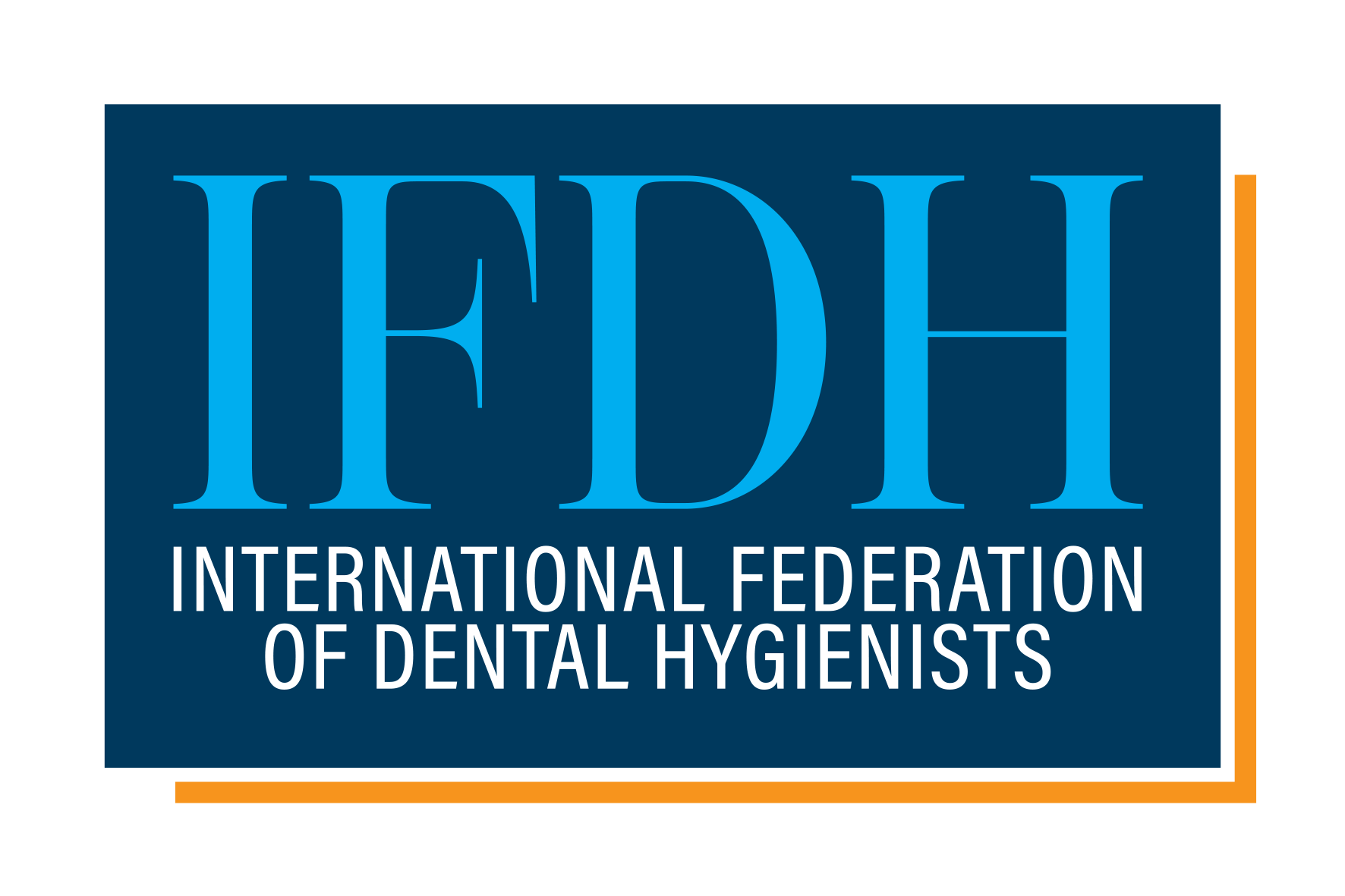IFDH 2021 Oral-Systemic Link Survey
 The IFDH recently fielded a survey to explore dental hygienists’ knowledge and practices regarding the link between oral and overall health. This was the 4th in a series or surveys to help identify opportunities for future educational programs. See the PowerPoint summary at the bottom of this page.
The IFDH recently fielded a survey to explore dental hygienists’ knowledge and practices regarding the link between oral and overall health. This was the 4th in a series or surveys to help identify opportunities for future educational programs. See the PowerPoint summary at the bottom of this page.
Results Summary
The survey was sent out to 34 national associations. There were 706 respondents, representing 23 countries. The top 5 countries with respondents were:
- United Kingdom 40%
- Canada 14%
- South Africa 7%
- Finland 7%
- Korea 5%
Respondents were slightly skewed towards those with more than 25 years in practice. Most respondents reported having a Diploma or Bachelor’s degree and working in private practice.
Links Exist Between Oral Health and Diseases
The majority of respondents said an established link exists between oral health and:
- Diabetes (92%),
- Cardiovascular diseases (90%),
- Mouth Cancer (75%), and
- Pregnancy outcomes (72%).
Fewer respondents said an established link exists between oral health and:
- Alzheimer’s disease (42%),
- Rheumatoid Arthritis (41%),
- COVID-19 (22%),
- Kidney disease (19%) and
- Colon Cancer (12%).
Most respondents said they always or often review patients’ medical history and counsel patients about the link between oral health and overall health during routine appointments. However, it is not common practice to take patients’ blood pressure or test their blood sugar level.
Respondents strongly agreed that:
- A relationship exists between dental plaque/bacteria, gingival bleeding/inflammation, and overall health;
- Improved plaque control will reduce risk of systemic conditions; and
- There is a need for more medical-dental interprofessional integration.
Most respondents strongly or somewhat agreed that patients understand there’s a link between plaque/periodontal disease and overall health, however, most patients are not proactively asking dental hygienists about it.
There are opportunities to:
- Provide dental hygienists with more information on the oral-systemic link to educate patients;
- Increase time dental hygienists have to counsel patients about it; and
- Provide more direction about how to put oral-systemic link news into practice.
Top resources for information about oral-systemic link include:
- Peer-Reviewed Journals (83%),
- CE courses and Webinars (80%),
- Professional Magazines (63%), and
- Colleagues (58%).
Oral health practices receiving the highest “extremely important” rating for reducing the risk for systemic diseases include:
- Removing plaque regularly via toothbrushing (91%);
- Managing periodontal disease (90%);
- Interdental cleaning (82%); and
- Reducing gingival bleeding (81%).
We would like to thank the respondents for taking time to complete the survey. The information is very useful and will help guide future educational learning opportunities.
Click here to save the PowerPoint summary with detailed results..
Click here to save the PDF results summary file.
The IFDH thanks Procter & Gamble (Crest / Oral-B) for supporting this project.





